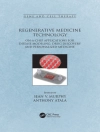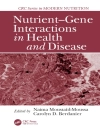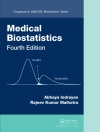Increasingly more and more children with developmental disabilities survive into adulthood. Pediatricians and other clinicians are called upon to care for an increasing number of children with developmental disabilities in their practice and thus there is a need for a practical guide specifically written for paediatricians and primary care clinicians that addresses major concepts of neurodevelopmental pediatrics. In the United States, the specialty training leading to a conjoint board certification by the American Board of Pediatrics and American Board of Psychiatry and Neurology, requires a total of 6 years of training (2 years of pediatrics, 1 year of neurology, 18 months of child neurology, 18 months of neurodevelopmental disabilities). As of December 2006, in the US, there were 241 pediatricians and 55 child neurologists certified in the subspecialty of Neurodevelopmental Disabilities. Thus most of the children with developmental disabilities are seen by pediatricians and therefore it is important for these pediatricians to be well informed of common issues in the field. The 60, 000 or so pediatricians in the United States (and hundreds more in other countries) are the main target audience for a practical book on neurodevelopmental pediatrics.
Зміст
Foreword: I Leslie Rubin, MD.- Chapter 1: Neurodevelopmental disabilities: Introduction and epidemiology, Dilip Patel and Joav Merrick.- Chapter 2: Basic concepts of developmental diagnosis, Dilip Patel.- Chapter 3: Psychological assessment and testing, Margo Adams Larsen, Erin Tentis-Berglund, Robin Joseph and Helen D Pratt.- Chapter 4: Inborn errors of metabolism, Manmohan Kamboj .- Chapter 5: Genetic evaluation in developmental disabilities, Helga Toriello .- Chapter 6: Neurodevelopmental aspects of common genetic syndromes, Helga Toriello .- Chapter 7: Autism spectrum disorders, Ahsan Nazeer.- Chapter 8: Attention deficit hyperactivity disorder, Donald E Greydanus .- Chapter 9: Sleep in children and adolescents with neurobehavioral disorders, Bantu Chhangani and Donald E Greydanus.- Chapter 10: Learning disabilities, Helen D Pratt and Donald E Greydanus .- Chapter 11: Intellectual disability, Dilip Patel and Joav Merrick.- Chapter 12: Developmental language disorders, Nikola Nelson.- Chapter 13: Disorders of speech and voice, Helen Sharp and Stephen M Tasko.- Chapter 14: Tic disorders, Donald E Greydanus.- Chapter 15: Medical management of cerebral palsy, Nancy N Dodge.- Chapter 16: Myelomeningocele, Dilip R Patel .- Chapter 17: Pain in individuals with intellectual and developmental disabilities, Lynn Breau, Meir Lotan and Jeffrey L Koh.- Chapter 18: Visual impairment, Katherine Bergwerk.- Chapter 19: Impact of neurodevelopmental disorders on hearing in children and adolescents, Bharti Katbamna and Teresa Crumptom.- Chapter 20: Sexuality and gynecological care, Donald E Greydanus and Hatim Omar.- Chapter 21: Dental aspects, Ilan Feldberg and Joav Merrick.- Chapter 22: General medical care of individuals with developmental disabilities, Joav Merrick and Mohammed Morad.- Chapter 23: Principles of team care for children with developmental disabilities, Dilip Patel and Helen D Pratt.- Chapter 24: Working with the family and care givers, Helen D Pratt.
Про автора
Dilip R Patel, MD, FAAP, FSAM, FAACPDM, FACSM, is professor in the Department of Pediatrics and Human Development at the Michigan State University College of Human Medicine, East Lansing, Michigan, USA. He is a full time teaching faculty member in the Pediatric Residency Program at the Michigan State University Kalamazoo Center for Medical Studies, Kalamazoo, Michigan, USA. Dr Patel has subspecialty training and interests in neurodevelopmental disabilities, developmental-behavioral pediatrics, adolescent medicine and sports medicine. He has published numerous papers on a wide ranging topics in these areas and has edited several special symposia and books. E-mail: [email protected]
Donald E. Greydanus, MD, FAAP, FSAM, FIAP (H) is Professor of Pediatrics and Human Development at Michigan State University College of Human Medicine (East Lansing, Michigan, USA) and Director of the Pediatrics Residency Program at Michigan State University/ Kalamazoo Center for Medical Studies (Kalamazoo, Michigan, USA). Received the 1995 American Academy of Pediatrics’ Adele D. Hofmann Award for “Distinquished Contributions in Adolescent Health”, the 2000 Mayo Clinic Pediatrics Honored Alumnus Award for “National Contributions to the field of Pediatrics, ” and the 2003 William B. Weil, Jr., M.D. Endowed Distinguished Pediatric Faculty Award from Michigan State University College of Medicine for “National & International Recognition as well as Exemplary Scholarship in Pediatrics.” Received the 2004 Charles R. Drew School of Medicine (Los Angeles, CA) Stellar Award for Contributions to Pediatric Resident Education and awarded an honorary membership in the Indian Academy of Pediatrics—an honor granted to only a few pediatricians outside of India. Was the 2007 Visiting Professor of Pediatrics at Athens University, Athens, Greece and received the Michigan State University College of Human Medicine Outstanding Community Faculty Award in 2008. Past Chair of the National Conference and Exhibition Planning Group (Committee on Scientific Meetings) of the American Academy of Pediatrics and member of the Pediatric Academic Societies’ (SPR/PAS) Planning Committee (1998 to Present). Member of the Appeals Committee for the Pediatrics’ Residency Review Committee (RRC) of the Accreditation Council for Graduate Medical Education (Chicago, IL) in both Adolescent Medicine and General Pediatrics. Numerous publications in adolescent health and lectureships in many countries on adolescent health. E-mail: [email protected]
Hatim A Omar, MD, FAAP, Professor of Pediatrics and Obstetrics and Gynecology and Director of the Section of Adolescent Medicine, Department of Pediatrics, University of Kentucky, Lexington. Dr. Omar has completed residency training in obstetrics and gynecology as well as Pediatrics. He has also completed fellowships in vascular physiology and adolescent medicine. He is the recipient of the Commonwealth of Kentucky Governor’s Award for Community Service and Volunteerism He is the recipient of the Commonwealth of Kentucky Governer’s Award for community service and volunteerism in 2000, KY teen Pregnancy Coalition Award for outstanding service 2002, Awards for suicide prevention from the Ohio Valley Society for Adolescent Medicine and Kentucky Pediatric Society in 2005 and 2007, Sexual Abuse Awareness Month Award for his work with sexual abuse victims from the KY association of sexual assault professionals in 2007, Special Achievement Award from the American Academy of Pediatrics 2007 and the Founders of Adolescent Medicine Award from the AAP in 2007. He is well known internationally with numerous publications in child health, pediatrics, adolescent medicine, pediatric and adolescent gynecology. E-mail: [email protected]
Joav Merrick, MD, MMed Sci, DMSc, is professor of pediatrics, childhealth and human development affiliated with Kentucky Children’s Hospital, University of Kentucky, Lexington, United States and the Zusman Child Development Center, Division of Pediatrics, Soroka University Medical Center, Ben Gurion University, Beer-Sheva, Israel, the medical director of the Health Services, Division for Mental Retardation, Ministry of Social Affairs, Jerusalem, the founder and director of the National Institute of Child Health and Human Development. Numerous publications in the field of pediatrics, child health and human development, rehabilitation, intellectual disability, disability, health, welfare, abuse, advocacy, quality of life and prevention. Received the Peter Sabroe Child Award for outstanding work on behalf of Danish Children in 1985 and the International LEGO-Prize (“The Children’s Nobel Prize”) for an extraordinary contribution towards improvement in child welfare and well-being in 1987. E-mail: [email protected];












